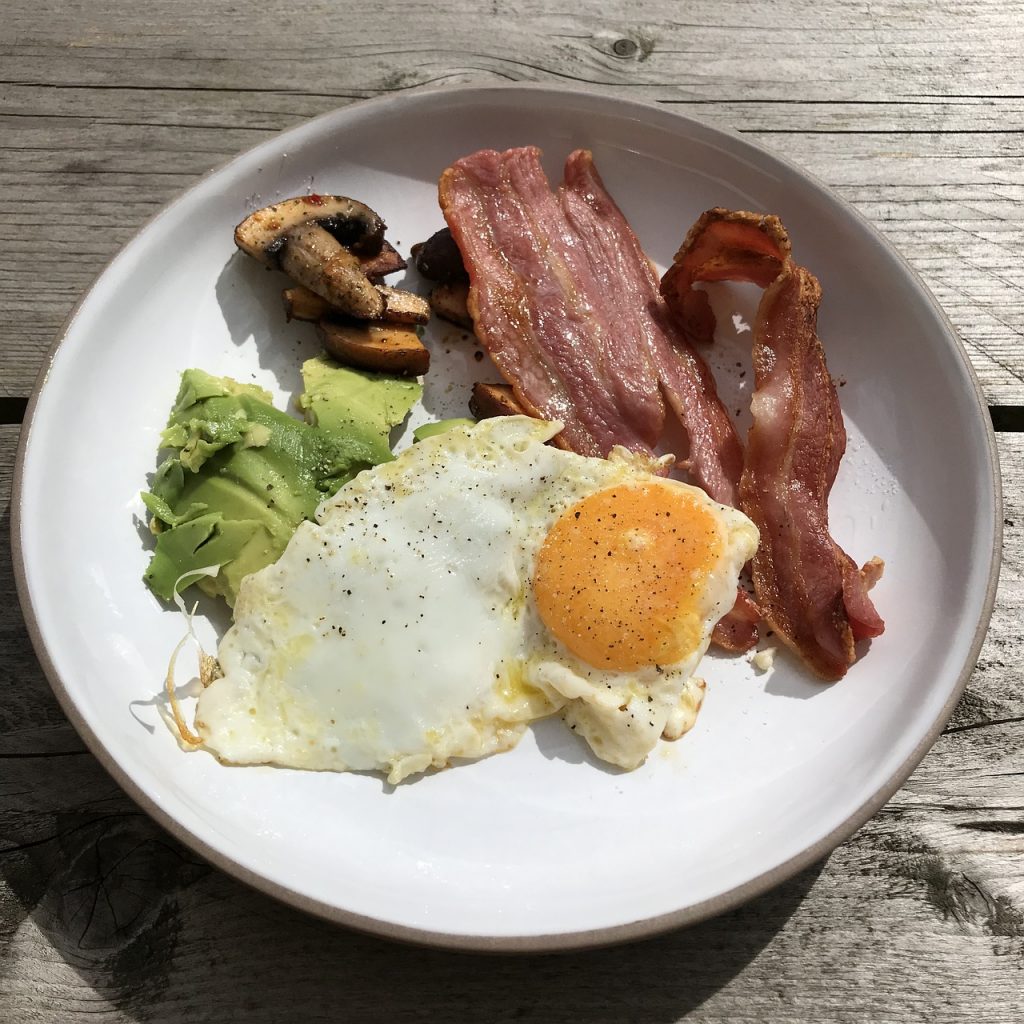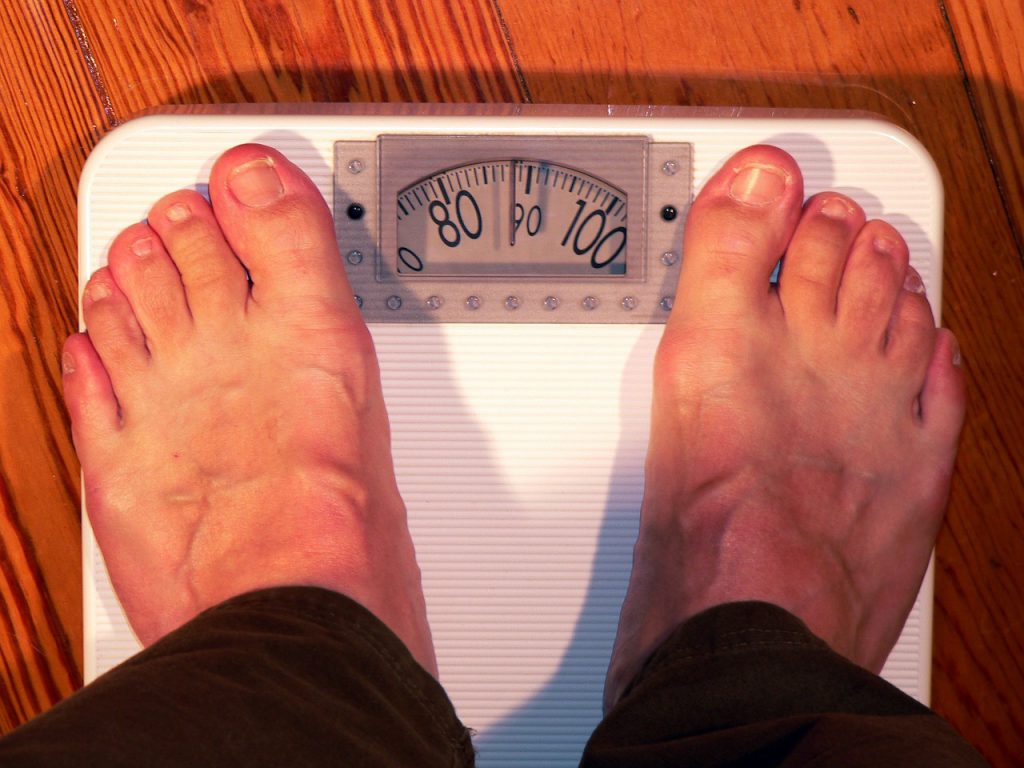Affiliate Links – I get commissions for purchases made through links in this post.
Important Notice: If you are suffering from severe constipation or stomach pain – see your medical adviser urgently. This post does NOT offer medical advice for urgent medical conditions.
Keto Constipation
 The short answer to the question, “Does the keto diet cause constipation”, is yes, in some cases it can do so. If you are following a diet which is high in fats and low in carbohydrates, then you will be able to achieve significant weight loss but constipation may occur as a result of what you are NOT eating!
The short answer to the question, “Does the keto diet cause constipation”, is yes, in some cases it can do so. If you are following a diet which is high in fats and low in carbohydrates, then you will be able to achieve significant weight loss but constipation may occur as a result of what you are NOT eating!
Some of the foods which cause constipation are foods that are high in protein such as cheese, chicken, beef, eggs and fish. You will need to eat additional fiber and drink extra water along with these if you want to be able to lose weight in a healthy manner.
When trying to avoid foods which cause constipation, there are also a number of foods you should consider including. A good alternative would be to eat a lot of nuts and seeds such as sunflower seeds as well as your favorite vegetables, where these are allowed on the particular diet you are following.
While some people are able to control their constipation, other people have a hard time getting through the day with the constipating effects of a diet. It may be a combination of the above mentioned problems or just one thing to blame for constipation on a ketosis diet.
It is important for you to remember that your body is working on losing weight and that that may mean a lower amount of food going through your digestive system, so there is a smaller volume of material to push through what you ate yesterday or the day before.
Keep track of your fiber intake. If you don’t consume enough fiber, your body will not digest the food you are taking and will not break down the food. Fiber is not only important for breaking down fat, but it is also important for cleansing the digestive system. If you do not have enough fiber in your body, your digestive system will not be able to remove the excess waste, making you feel tired and bloated. If you think you may have constipation on a ketosis diet, try eating smaller meals each day instead of three large meals. Instead of having three large meals, have three smaller meals throughout the day. This way, if you feel tired or bloated, you will be able to snack throughout the day and still eat a substantial amount of healthy foods without worrying about having too much food or feeling bloated!
Constipation does not have to be a big deal as long as you are able to manage it and eat the right foods and make sure you get enough fiber!
Constipation can occur as a result of being dehydrated, a lack of fiber, or a poor diet. Constipation can be overcome by eating plenty of foods that contain fiber and drinking plenty of water. If you find that you are constipated you will also want to try changing your eating habits. Changing your eating habits is one of the best things you can do to stop constipation on a ketosis diet, as eating less of these high fiber foods can lead to a constipation problem.
How To Add Extra Fiber To Your Diet
The no-calorie version of extra insoluble fiber is psyllium husks, also known as Ispaghula. These have no nutritional value, however, they can be extremely useful in adding extra fiber and helping relieve constipation. It is VERY IMPORTANT to take enough water at the same time as taking any extra fiber. Fiber absorbs water and swells. This is what moves the digested food along your gut. Another alternative is to take Linseed or flax seed. I take this in soup. It goes well and the liquid in the soup helps with constipation too.
How To Chug Psyllium Husks
I have found the best way to take psyllium husks is to chug them down, that is, mix them with water and swallow quickly. My preferred method is to half fill a small glass or cup with cold water, add some hot water, to take off the chill and add a dash of lemon juice (or flavor of your choice) to disguise the taste, then stir in 2 teaspoons of dried psyllium husks and fill up the cup / glass and drink it straight down. I then take another glass of water, of the same size and drink that straight down too. (Psyllium doesn’t have any particular taste, I just find it hard to take unless I add lemon juice. A teaspoon of lemon juice will add only a few calories, so will not knock you out of keto by itself.) It’s important to take enough water at the same time as the psyllium husks or they can block your gut! If you need more fiber, just repeat this later in the day. You need to try for yourself as to how much psyllium husk to use.
Linseed In Soup Relieves Constipation
Linseeds or flax seeds are high in insoluble fiber and very nutritious but unless cracked or milled, they tend to go through the digestive system unchanged. This makes them useful for preventing or relieving constipation without adding calories. Cracked or milled flaxseeds can still be used on a ketotic diet as they are low carb and can still help prevent constipation. They can be taken many ways, sprinkled on salad, mixed with cream cheese or scrambled egg but my favorite is in soup. I have tried them with many soups, green soup, vegetable broth, carrot soup, etc. They work well with them all, add a great nutty flavor and are easy to take. I add 2 ladlefuls of soup to a bowl and then sprinkle linseeds on top of that. The amount depends on how much you personally need. Try a bit at first and increase the amount next time, if necessary. You can use both linseed and ispaghula (psyllium) if necessary. Just take it easy and try a little more each day until you find the best balance for your body.
Other Sources Of Fiber and Soluble Fiber
Inulin and apple fiber. Soluble fiber.

